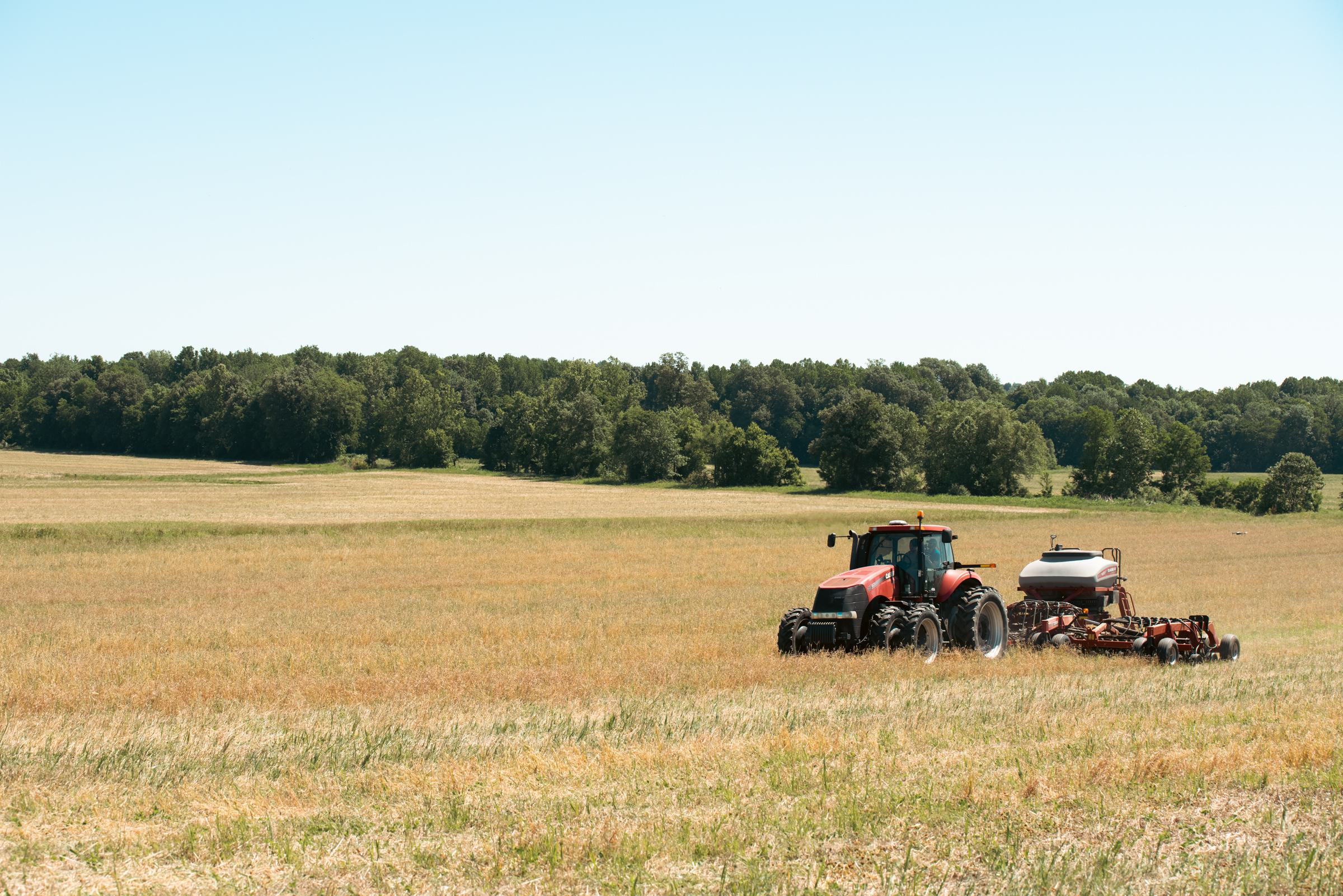Soil Health Success Stories
February 20, 2023
A growing movement of farmers and ranchers are discovering the environmental and economic benefits of soil health practices. From no-till systems, to growing cover crops, to rotational grazing, they are improving the way their soil cycles water, nutrients, and carbon.
Meet four recipients of the Leopold Conservation Award who exemplify the leadership qualities needed in agriculture to better steward its greatest resource, the soil.
RYAN BRITT combined his passions for conservation and technology as an early adopter of grid-based soil testing and variable rate fertilizer applications.
He hosts on-farm research on the effects of crop diversity on soil health. Measuring the effects of each change he makes helps guide his decision making. His willingness to share his experience with other farmers helps scale up soil health practices beyond his farm gate.
- - -

SETH WATKINS had a vision for the farmland he inherited and bought in the 1990s. He would emulate how Native Americans once stewarded the land by not tilling it, and returning much of it to grass to graze cattle rather than growing row crops.
He used geospatial technology to determine which conservation practices would benefit different parts of his farm.
- - -

MICHAEL THOMPSON grew up fully aware of the crop failures that harsh weather can bring in northwest Kansas. He knew there had to be a different (and more profitable) way to grow crops and raise cattle. To avoid the loss of topsoil from wind and rain, he began growing a diverse rotation of cover crops, using no-till practices and rotational grazing.
Today he 's part of the National Association of Conservation Districts' Soil Health Champions Network.
- - -

THE REDDICK FAMILY has found not tilling their soil prior to plnting crops each spring increases the soil's infiltration and conserves moisture, which buffers against drought.
Growing diverse cover crops builds soil organic matter, reduces erosion, and suppresses weeds. A cover crop's ability to absorb nutrients and then release them back to feed corn plants has reduced the Reddick's need for commercial fertilizers.
- - -

Sand County Foundation works to inspire and empower a growing number of private landowners to ethically manage natural resources in their care, so future generations have clean water, abundant wildlife habitat, and opportunities for outdoor recreation.
Sand County Foundation's Leopold Conservation Award celebrates the voluntary efforts of farmers, ranchers and forestland owners who improve soil health, water quality, and wildlife habitat on their working lands. To read and watch more the inspiring stories of landowners who have received this recognition, click here.
